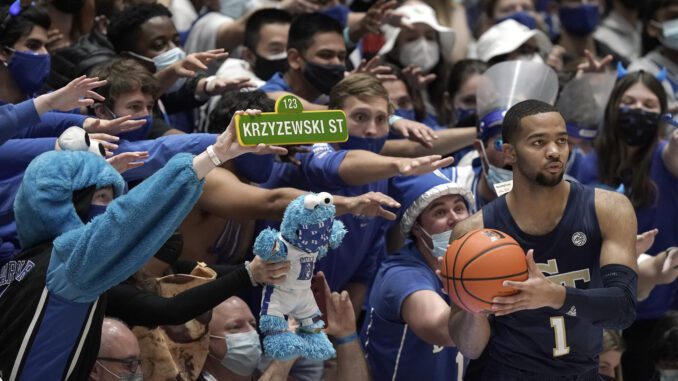
I’m a sportswriter. And I would like you to know, that, despite what you think, I don’t hate your team.
Its fanbase, on the other hand, sometimes gets on my nerves.
My job is to write about what happens before, during and after a sporting event. That means sometimes writing about the team that’s playing yours and even saying good things about it when it’s doing well. It means sometimes finding facts that may not paint your team in the brightest light.
From time to time, I’ll tell truths that you won’t want to hear.
Here are some more:
Your team does not own the moral high ground. Your coach and/or best player may be great guys. That doesn’t mean everyone else wearing other colors are evil, crooked and two-faced.
Sports is a highly competitive, sometimes dirty business. It’s very tough to always do the right thing. Sometimes, your coach, as honorable and decent as they are, may need to talk to some seedy people, may need to tell some half-truths, may even need to step over the line. It’s OK. Unfortunately, it’s part of the job. The ones that don’t do that usually don’t get to this level.
Your team isn’t made up solely of hard-working, clean-cut, rule-abiding citizens. Some of them are, to be sure, but some of them might drive fast, take things that don’t belong to them and be less than respectful of women. Your players are people, and a much-too-large percentage of people do those things. A rival team’s player doing those things is not a victory for your team. It shouldn’t be celebrated.
Your team’s coach may even know that some of the players are like this when he brings them in and decide to do it anyway, because they’re really good at their sport.
Your team’s players don’t have a special connection to your city, school or crowd that no one else can understand. All players like the fans that cheer loudly for them. Most everyone loves their school, and after living in a city for a while, it usually feels like home for everyone.
The referees, umpires and judges don’t hate your team. There’s no conspiracy favoring your rival. Sometimes, a foul or penalty is missed. Sometimes, one is called that shouldn’t have. They are mistakes, not attempts to sway the result one way or the other. Officiating can vary in quality and leniency, and that can affect a team’s strategy, but the most important story from a game is almost never the officiating. It’s like the weather — just something to contend with for both sides. Similarly, the league, schedule makers, national broadcasters and poll voters don’t have it in for your team either. Nor are they in the bag for your rival.
I do not work for your team. I am not friends with the players or coach. Some of them are polite, respectful, thoughtful and seem to tell me the truth. I enjoy talking to them. Others are not, and I don’t. But I still talk to them, because it’s part of the job.
Whether I like them or not, I may have to ask them uncomfortable questions. I may have to talk to them when they’re fighting off tears after a heartbreaking loss. It’s brutal and draining, but that’s the time when they’re available for us to talk to them. It’s part of the job — the toughest part of the job. And after asking the questions and writing what I’m going to write, I have to look them in the eye next game and ask them a different set of questions.
I don’t expect you to feel the same way as I do about your team or its rival. Your passion is part of the reason I have a job — because people want to know more about their team. Don’t expect me to feel the same way as you do. I don’t, because I can’t.
It’s not that I hate them. It’s just that I don’t love them.
